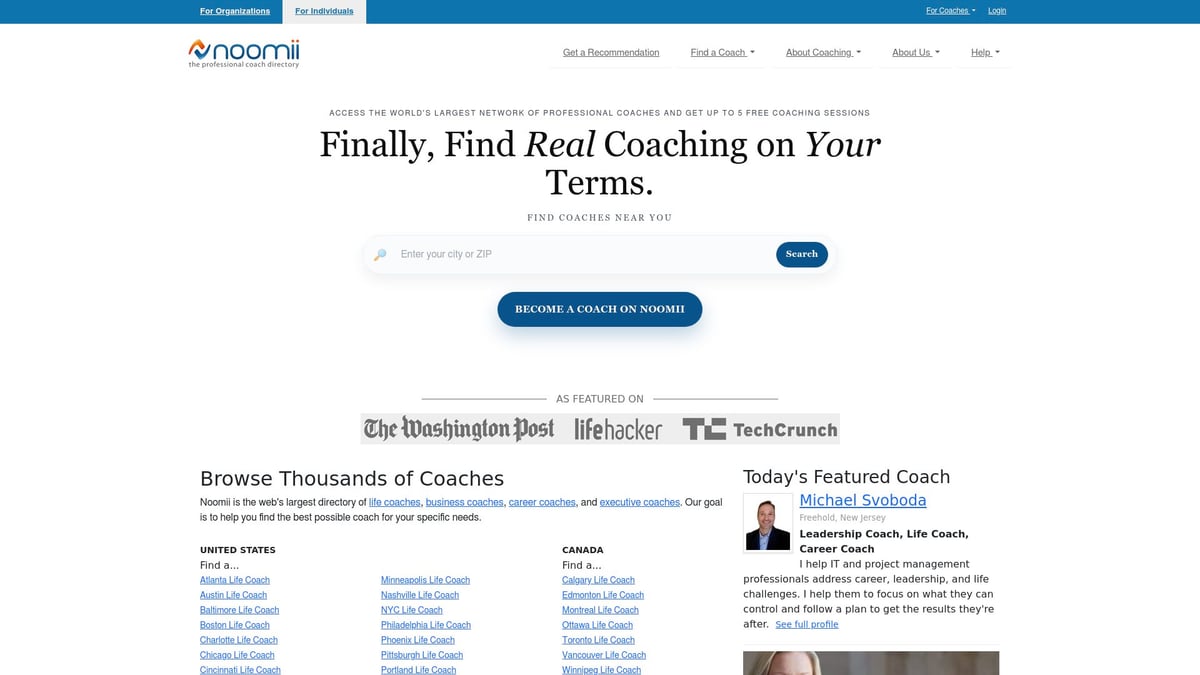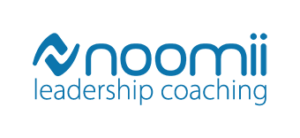Executive Life Coaches: The Essential Guide for Leaders 2025
In today’s business landscape, leaders are under constant pressure to deliver results, adapt quickly, and motivate teams through uncertainty. The demands on modern executives have never been greater, making the search for effective solutions more urgent than ever.
As organizations evolve, executive life coaches have emerged as vital partners for leaders aiming to unlock breakthrough growth and build long-term resilience. These specialized coaches equip top talent with tools for sharper decision-making, emotional intelligence, and sustainable success.
This guide demystifies the world of executive life coaches, showing how their expertise transforms both individual performance and organizational outcomes. Drawing on leading research and real-world examples, we’ll reveal actionable strategies and measurable benefits.
Ready to discover how executive life coaches can elevate your leadership in 2025?
What Is an Executive Life Coach?
An executive life coach is a specialized professional who partners with leaders to drive growth, resilience, and personal transformation. Unlike traditional life or business coaches, executive life coaches focus on developing high-level leadership skills while addressing both professional and personal challenges.
Their primary mission is to enhance leadership effectiveness, guide decision-making, and support ongoing personal development. Most clients are C-suite executives, directors, senior managers, and rising leaders who seek a confidential, results-driven partnership.
Executive life coaches use various modalities, including one-on-one sessions, group coaching, and digital or in-person meetings. Their core competencies span emotional intelligence, strategic thinking, accountability, and advanced communication. By leveraging these skills, executive life coaches help leaders navigate complex environments and achieve lasting impact.
For example, when a Fortune 500 VP faced organizational change, an executive life coach provided tailored strategies to boost confidence and performance. According to the ICF Global Coaching Study 2023 Executive Summary, over 70% of leaders report improved work performance after coaching. This measurable progress highlights why so many organizations view executive life coaches as essential partners for success.

Why Leaders Need Executive Life Coaches in 2025

The Evolving Demands on Modern Leaders
In 2025, leaders face a rapidly changing landscape shaped by digital transformation and increasingly virtual teams. As organizations scale globally, complexity rises, requiring leaders to adapt quickly to new technologies and shifting markets.
Stakeholders now expect leaders to demonstrate empathy, agility, and inclusivity at every level. This heightened expectation, combined with relentless pressure for results, often leads to burnout and decision fatigue. Executive life coaches provide vital support to help leaders navigate these intense challenges, ensuring they can maintain focus, resilience, and clarity.
Measurable Benefits of Executive Coaching
The impact of executive life coaches is measurable and significant. Leaders who engage in coaching report higher self-awareness and stronger emotional intelligence. These qualities translate directly into improved team engagement and higher retention rates.
A recent study, Google’s Project Oxygen, found that coaching skills are a core trait of top-performing managers. The table below summarizes some key benefits:
| Benefit | Outcome |
|---|---|
| Self-awareness | Better leadership decisions |
| Emotional intelligence | Stronger team dynamics |
| Engagement and retention | Lower turnover |
| Decision-making speed | Faster, more confident choices |
To further support these outcomes, many organizations invest in leadership development programs that complement executive coaching and drive holistic growth.
ROI and Organizational Impact
Investing in executive life coaches delivers a substantial return. According to the International Coaching Federation, the median ROI for executive coaching is seven times the initial investment. For example, a mid-market technology company reduced turnover by 25 percent after implementing coaching initiatives.
Coaching is now recognized as a strategic investment, not a luxury. This approach ensures leaders are equipped to drive measurable results and adapt to future demands.
How Executive Life Coaching Works: The Process Explained
Understanding how executive life coaches facilitate transformation begins with a structured, measurable process. Each step is designed to maximize leadership impact and deliver tangible organizational results.

Step 1: Assessment and Goal Setting
Executive life coaches start with a comprehensive assessment. This includes 360-degree feedback, leadership diagnostics, and aligning coaching goals with business KPIs. By setting clear, measurable objectives, leaders can track growth from the outset.
For organizations seeking high-caliber coaching partners, resources like the Top executive coaching firms directory help benchmark standards and select experienced professionals.
Step 2: Personalized Coaching Engagement
Every coaching journey is unique. Executive life coaches tailor sessions to address each leader’s specific challenges and aspirations. One-on-one meetings, whether virtual or in-person, foster a confidential, supportive partnership focused on real-world issues.
This personalized approach ensures leaders receive relevant strategies, actionable feedback, and a safe space to explore solutions.
Step 3: Skill Development & Accountability
Skill-building is at the core of executive life coaching. Coaches use real-time feedback, role-playing, and practical assignments to strengthen leadership habits. Accountability is reinforced through regular check-ins and progress reviews.
Leaders develop new mindsets and behaviors that drive both personal and team performance.
Step 4: Measuring Progress and ROI
Progress is tracked with KPIs and qualitative feedback, ensuring coaching delivers measurable outcomes. For example, leaders often report productivity gains of 30 percent or higher after completing a program.
Regular evaluation allows organizations to adjust strategies, demonstrating the concrete value of executive life coaches in driving sustainable growth.
Choosing the Right Executive Life Coach
Selecting among executive life coaches is a pivotal decision for any leader. The right choice can accelerate growth, while the wrong fit may stall progress.
When evaluating executive life coaches, start by reviewing their credentials. Look for ICF certification, extensive business experience, and a proven track record. To understand essential competencies, explore resources like ICF Philadelphia’s Training Series on Core Competencies.
Compatibility is key. Chemistry, communication style, and mutual trust set the foundation for a productive coaching partnership. According to recent studies, 86% of coaching clients believe coach-client fit is critical to success.
Consider specializations that align with your industry, leadership level, or diversity needs. Interview multiple executive life coaches, request trial sessions, and ask about their approach to conflict resolution. Below is a simple comparison:
| Coach A | Coach B |
|---|---|
| Structured process | Flexible approach |
| Data-driven results | Empathy-focused |
Be cautious of coaches who overpromise results or lack measurable frameworks. Leaders like Don Markland, founder of Accountability Now, exemplify the value of experienced, ethical coaching. Choose wisely to unlock your leadership potential.
Noomii: Your Partner for Corporate Executive Coaching
In the fast-paced world of leadership, organizations need trusted partners who understand the demands facing executive life coaches. Noomii stands out by providing live, in-meeting coaching tailored to the real challenges of mid-market and Fortune 500 teams.

Noomii’s approach is practical and results-driven. Services include:
- Executive coaching for leaders at every level
- Leadership development programs designed for measurable growth
- Team facilitation that enhances communication and alignment
- KPI-driven progress tracking for clear ROI
What sets Noomii apart is flexibility. There are no long-term contracts, only month-to-month terms with incentives aligned to your organization’s goals. This ensures executive life coaches are focused on outcomes that matter, such as faster decision-making, stronger communication, and better retention.
With access to thousands of vetted executive life coaches worldwide, Noomii enables organizations to build high-performing, accountable teams. Leading companies have leveraged Noomii to create cultures of accountability, drawing on expertise from industry leaders like Don Markland.
Ready to equip your leaders for success in 2025? Discover how Noomii can help your organization thrive with executive life coaches who deliver measurable impact.
Essential Qualities of Top Executive Life Coaches
What sets top executive life coaches apart in today’s complex business environment? The answer lies in a blend of expertise, character, and proven coaching methodologies.
| Quality | Why It Matters |
|---|---|
| Business Acumen | Coaches with real-world leadership experience understand the pressures leaders face and offer practical guidance. |
| Empathy & Active Listening | Empathetic coaches build trust by listening without judgment, creating a safe environment for growth. |
| Accountability & Motivation | They challenge and inspire leaders to develop new skills and reach ambitious goals. |
| Evidence-Based Frameworks | Using proven coaching models ensures measurable progress and sustainable change. |
| Ethical Standards | Confidentiality and integrity are non-negotiable for executive life coaches. |
For example, a skilled coach might guide a CEO through a crisis by applying resilience techniques, helping them adapt quickly and maintain team confidence. Leaders seeking qualified executive life coaches can explore the Directory of executive coaches to find professionals with these essential qualities.
Trust is the cornerstone of effective coaching. In fact, 92% of leaders identify trust as the most important factor in coaching success, according to Harvard Business Review.
Future Trends: The Evolution of Executive Life Coaching
The landscape for executive life coaches is rapidly transforming as organizations seek new ways to empower leaders. Technology is at the forefront, with AI-driven tools and real-time data analytics allowing coaching to be more personalized than ever before.
AI-powered assessments are now used to identify development needs and track leadership growth. These digital insights help executive life coaches craft tailored strategies, ensuring measurable progress for every leader. Hybrid coaching models are also gaining traction, blending virtual platforms with in-person sessions for flexibility and global reach.
Diversity, equity, and inclusion have become central to executive life coaching. Coaches are facilitating more inclusive leadership practices, supporting broader representation at all levels. Peer and group coaching are on the rise, fostering collaborative skills and shared accountability among leadership teams.
Organizations are increasingly weaving coaching into their core strategies and cultures. According to Developing a Coaching Culture in Organizations, aligning coaching with business goals drives sustainable change and performance. Leaders like Don Markland, founder of Accountability Now, are pioneering results-driven methods that focus on measurable accountability and resilience.
By 2025, experts predict that 60% of Fortune 500 executives will engage in ongoing coaching. As executive life coaches continue to innovate, their impact on organizational success will only grow.



Leave a Reply
Want to join the discussion?Feel free to contribute!